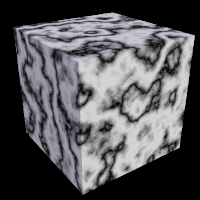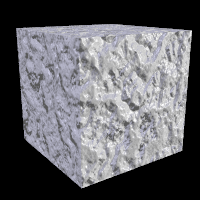Difference between revisions of "Reference:Agate Pattern"
Jump to navigation
Jump to search
Jholsenback (talk | contribs) m (1 revision: Initial Load (TF)) |
Le Forgeron (talk | contribs) m |
||
| (2 intermediate revisions by 2 users not shown) | |||
| Line 28: | Line 28: | ||
} | } | ||
</pre> | </pre> | ||
| + | |||
| + | <table class="centered" width="420px" cellpadding="0" cellspacing="10"> | ||
| + | <tr> | ||
| + | <td>[[Image:RefImgAgatePigment.png|center|200px<!--centered--->]]</td> | ||
| + | <td>[[Image:RefImgAgateNormal.png|center|200px<!--centered--->]]</td> | ||
| + | </tr> | ||
| + | <tr> | ||
| + | <td colspan="2"><p class="caption">agate pattern used as pigment and normal respectively</p></td> | ||
| + | </tr> | ||
| + | </table> | ||
Latest revision as of 08:12, 1 March 2014
The agate pattern is a banded pattern similar to marble but
it uses a specialized built-in turbulence function that is different from the
traditional turbulence. The traditional turbulence can be used as well but it
is generally not necessary because agate is already very turbulent. You may
control the amount of the built-in turbulence by adding the optional
agate_turb keyword followed by a float value. For example:
pigment {
agate
agate_turb 0.5
color_map {MyMap}
}
The agate pattern has a default color_map built in that results
in a brown and white pattern with smooth transitions.
Agate as used in a normal:
normal {
agate [Bump_Size]
[MODIFIERS...]
}
agate pattern used as pigment and normal respectively |
|

